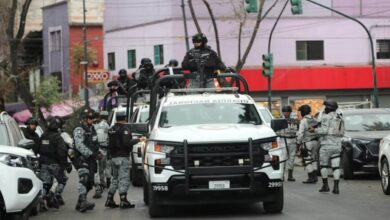Ecuador: Why the Communication Law has been partially vetoed?
Listen this article
The government of Lenin Moreno has suspended the article regarding frequency licenses

On December 18, the Ecuadorian National Assembly approved the reform of the controversial Organic Law of Communication (LOC). One of the points of greater debate is one of the transitory octaves that dictates that the licenses for the frequencies of the radioelectric spectrum can be renewed, by ten years, without the opening of a public contest.
Leer en español: Ecuador: ¿por qué se ha vetado parcialmente la Ley de Comunicación?
The government of Lenin Moreno has decided to veto these modifications, considering them "unconstitutional", according to the Ecuadorian national communications secretary, Andrés Michelena. In his official Twitter account, the secretary said that "transparent mechanisms for [allocation] of [frequencies] should be established".
Se vetará la transitoria 8 sobre renovación automática de frecuencias. No podemos avalar algo que va en contra de la Constitución, del informe de Contraloría y que permitiría la concentración de frecuencias. Buscaremos de inmediato mecanismos transparentes para su asignación. pic.twitter.com/p5AXfk6M2B
— Andrés Michelena (@caanmichelena) 26 de diciembre de 2018
The government has 30 days to present the appeal for the suspension of the transitory eighth and once received by the National Assembly, the necessary changes in the project can be introduced. The intention of the government is to fight against the irregular allocation of licenses, as well as to avoid the formation and maintenance of monopolies in the media.
However, according to the Coordinator of Community, Popular and Educational Media (Corape), modifications in the LOC pose a danger to community media. Although the reform approved by the National Assembly supposes an equitable distribution of the radioelectric spectrum of 66% for public and private media and 34% for community media, the project is ambiguous and could mean a smaller allocation than stipulated.
According to the official communication of the Corape, the project introduces "the preposition" up to "which opens the possibility of reducing the allocation of 34% of the radio spectrum for the community sector according to demand". This would mean a disadvantage in urban areas for community media.
Problems like these are not surprising since the LOC has presented them since it was approved in 2013, by the government of Rafael Correa. According to the original document of the law, the government acquired powers of decision over what content appears in the media and in what form. Likewise, this law required the media to establish deontological codes that dictate regulations for journalism. It is not for nothing that the LOC was nicknamed at the time as "Gag Law".
Maybe you're interested in reading: New Ecuadorian Vice President: is the third time the charm?
Some sectors may think that the veto is a symptom of the estrangement of Lenin Moreno's government from Correa's legacy. On December 11, the new Vice President of Ecuador, Otto Sonnenholzner, a businessman with broad experience in broadcasting, was inaugurated. Also, the recent reforms to the LOC have tried to counteract some of the restrictive nature of the project.
In fact, deontological codes were eliminated; This does not mean that the new law is better than the previous one. The complaint of the Corape is proof of this. Of course, advances in communication and press freedom are evident and should be valued, but the Ecuadorian political class must be consistent with the search for these values.
The bill passed during the Correa administration tried to give priority to content produced in Ecuador as well as to prohibit national media from being acquired by foreigners, but not before being restrictive with freedom of expression. Does that mean that the Moreno government should make a 180 degree turn? That is, should foreign investment be allowed to take local media and give more room to non-Ecuadorian content?
This must correspond to the country project being built by the government in office, although it is necessary to protect and support one's own, one should also guarantee the rights of community media as well as allow free traffic of content, especially in the context of the hyperconnected society.
The ideal would be to find the balance between all these elements while guaranteeing freedom of the press. The original LOC was a serious step back in this last element but an advance for the exhibition of the Ecuadorian productions. Hopefully, the government of Moreno is timely and achieve such a balance.
LatinAmerican Post | Iván Parada Hernández
Translated from "Ecuador: ¿por qué se ha vetado parcialmente la Ley de Comunicación?"





